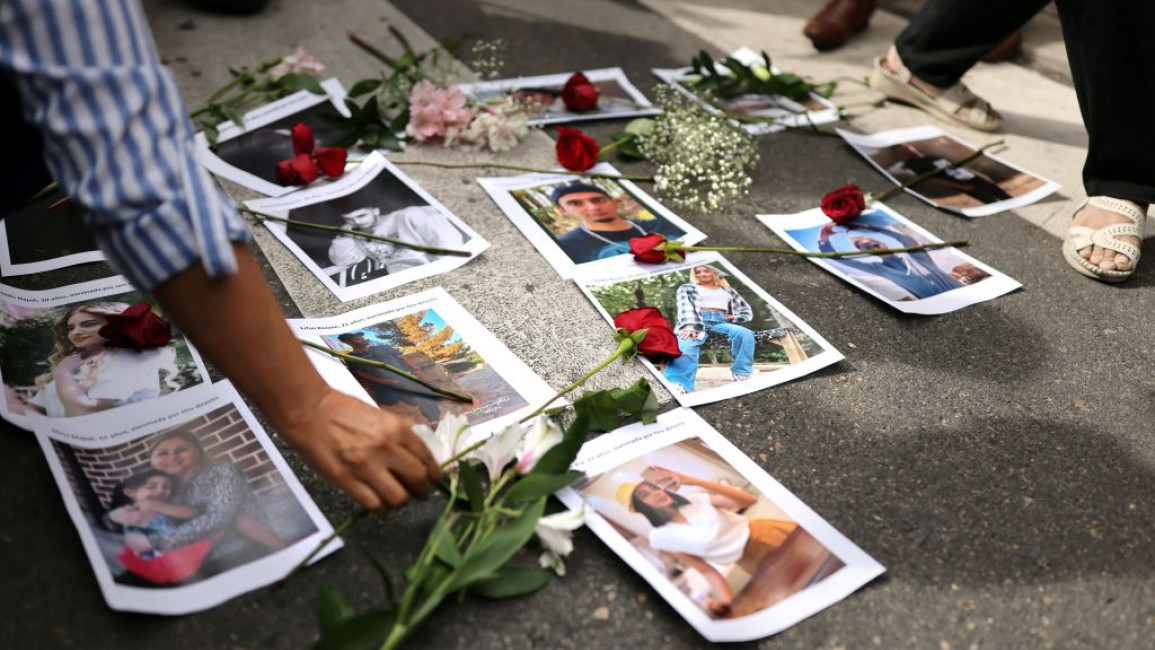Iran sisters' version of 'Bella Ciao' adopted as resistance anthem by Mahsa Amini protesters
Two Iranian sisters' Persian version of the famous Italian folk and resistance song "Bella Ciao" has gone viral on social media, as anti-government protests sweep through Iran.
Samin and Behin Bolouri shared a black and white video of them singing the protest song - considered an anthem of freedom and left-wing movements - via Instagram.
The post, which has received over 220,000 likes, was then shared widely by supporters of anti-government demonstrations in Iran on Instagram, Twitter and TikTok.
"In the end, the chain, the worldwide oppression, breaks with our hands," read lyrics from the sister’s version according to journalist Omid Memarian.
The song is largely about hope over despair.
Iran has seen mass demonstrations across several towns and cities following the death in custody of 22-year-old Mahsa Amini, who was arrested in Tehran earlier this month for allegedly wearing her hijab incorrectly.
Amini was taken to the hospital just hours after her arrest and died days later. Eyewitnesses said she was beaten by the so-called morality police in a van and at a police station.
For many Iranians - who reject the state's line that she died of a heart attack - Amini has become a symbol of female oppression. Her death prompted many to take to the streets to demand greater freedom and equality for all.
"Bella Ciao" is believed to have originated among Italian female rice field workers protesting against harsh conditions.
It was later allegedly modified by the Italian resistance movement for partisans who opposed the German Nazis and Italian fascists.
Samin and Behin Bolouri recorded their version ahead of the September 2022 protests. When sharing the cover version, the caption next to their video read: "We will not be awake until tomorrow."


![President Pezeshkian has denounced Israel's attacks on Lebanon [Getty]](/sites/default/files/styles/image_684x385/public/2173482924.jpeg?h=a5f2f23a&itok=q3evVtko)



 Follow the Middle East's top stories in English at The New Arab on Google News
Follow the Middle East's top stories in English at The New Arab on Google News


